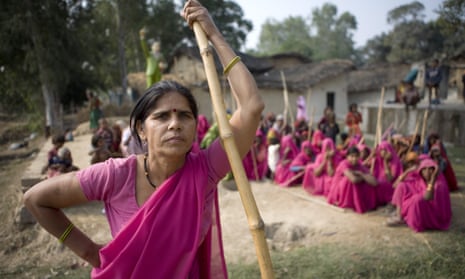Only about 1% of all official aid, and an even smaller portion of humanitarian assistance, goes directly to the global south. Unpublished research into private foundations suggests that they, too, channel the majority of their funding through what I call “fundermediaries” in the global north. While more resources do find their way eventually to southern actors, this “trickle down” approach creates inefficiencies and undermines agency.
Our annual State of Civil Society Report this year focused on resourcing for civil society. In the weeks leading up to its publication, and in the weeks since, I have been asking almost every donor I meet why they seem unable, or unwilling, to fund the frontline directly. Here are the top five reasons they give me:
- Lots of southern and smaller CSOs do not have the capacity to fill in all our forms, let alone spend our money effectively.
- We do not have the administrative capacity to give smaller amounts of money.
- We need to channel money through a few, trusted partners so that we can manage risk and comply with our own rules.
- We have strict anti-terror and anti-money laundering rules that make giving directly difficult.
- We are under domestic political pressure to fund through CSOs in our home country.
As one may expect, these reasons are less than well received by southern organisations, as evidenced publicly recently when the gloves came off in a heated exchange in Geneva.
The good news is that the more thoughtful donors are trying to address these issues. For example, USAid under Raj Shah committed to a localisation strategy (although the agency is apparently struggling to meet its targets) and in private philanthropy organisations like the Stars Foundation have called on others to “Fund the front line”. Meanwhile, the UK’s Department for International Development (DfID) is currently conducting a wide-ranging civil society partnership review that includes looking at more direct funding of southern CSOs, although DfID’s FAQ response on this question clearly aims to continue representing the needs of UK CSOs.
For me, the issue here goes beyond the question of “development impact” – we know local actors offer more efficient and often more sustainable solutions. Instead, it comes down to how prepared donors and others are to disrupt the current development model; how prepared we all are to smash the “charitable industrial complex”, as Peter Buffet once called it.
Part of the problem is that the science of delivery has been strangling the art of social transformation. Driven by the need to measure results, donors have helped to nurture a cadre of contracted civil society organisations, who are excellent at “accounts-ability” but less good at disruptive change.
Naturally, this kind of funding has favoured larger, professionalised CSOs. Most have been founded and are based in the north; they have the capacity to plan, deliver and monitor, regurgitate the latest jargon, prepare a plausible logframe, and be visible in high-level development forums.
Meanwhile, smaller and southern-based CSOs, particularly change-seeking bodies, have struggled to find resources to support their work. Domestic state funding is often not an option, or, when it is available is deeply problematic, and southern private foundations are few and far between, especially those prepared to fund advocacy or social change.
All of this has served to deep-freeze existing power imbalances: global civil society now seems to be lagging behind the global economic and geopolitical changes that have started to disperse power and influence. As I have argued elsewhere, we need to work out how to build a more multi-polar civil society.
Even the relatively little money that does go to southern civil society is being increasingly regulated or restricted by governments worried about foreign funding of dissent.
Unless donors are brave enough to begin funding in a different way, that fundamentally reconfigures current structures and systems, then we will continue to undermine our efforts towards sustainable development unnecessarily.
Donors need to fund diversity; they need to make available a diversity of funding sources to a diversity of civil society forms and actions at different levels, over different time periods and with different levels of risk. Some donors need to support core funding of CSOs, particularly change-seeking CSOs in the global south. They also need to devolve resource decision-making as close to the ground as is feasible.
The good news is, there are different ways in which civil society “fundermediaries” can help: by disbursing smaller grants to smaller organisations in the global north (as Forum Syd does in Sweden), by using regional mechanisms (like the African Women’s Development Fund) or by tapping into community foundations close to the ground (like the grantees of the Global Fund for Community Foundations.
Donors also need to acknowledge that funding decisions always have politics embedded in them; they’re always about more than just efficiency and effectiveness. Donors need to accept that one of the roles of civil society is to ask difficult questions and to challenge power; they then need to ask themselves, are they enabling that role?
In the longer-term, increasing direct funding to southern-based and smaller CSOs will be a necessary (albeit not sufficient) condition for a range of things that need to happen: whether it is allowing communities to determine their own solutions to their own problems, or building effective institutions that can survive and thrive long after the “development” project is over, or sending positive signals to inspire and reassure local funders.
Most importantly, if we are to push back effectively and sustainably on threats to civic space, we need to build a cadre of confident local actors that have a diverse, and reasonably secure, resource base to work from. A community of weak CSOs, reliant on sub-grants and contracts, will hardly deliver the changes we need.
Dhananjayan Sriskandarajah is the secretary-general of Civicus, the global civil society alliance. Follow @civicusSG on Twitter.
Join our community of development professionals and humanitarians. Follow @GuardianGDP on Twitter

